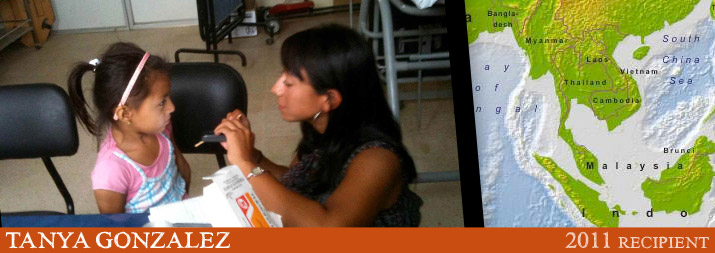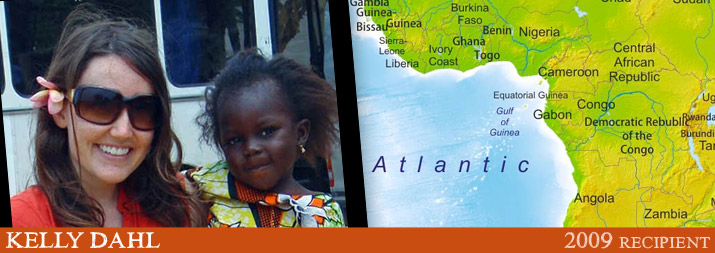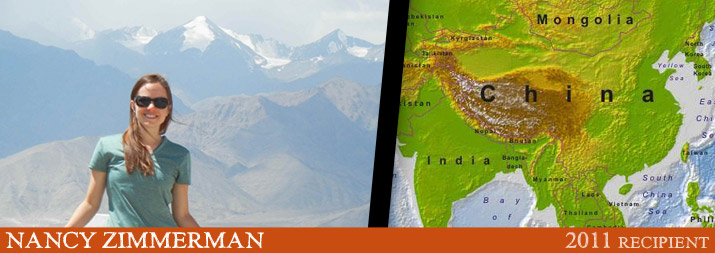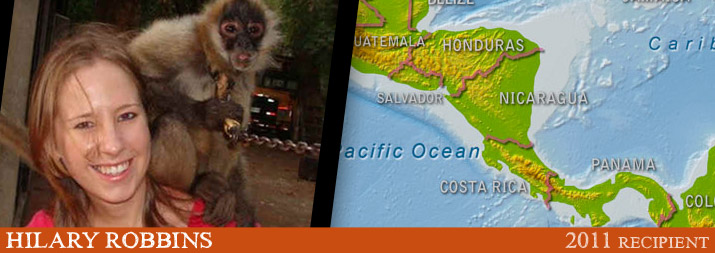
Tanya Gonzalez is pursuing a medical degree at Howard University. During the summer 0f 2011, Tanya contributed her medical expertise to under-served populations in both Cambodia (for two weeks) and Ecuador (for six weeks). Tanya’s volunteer work is possible thanks to a $1500 scholarship from Sara’s Wish Foundation.
Here are Tanya’s travel safety tips for Cambodia:
I found the Cambodian people to be very warm and welcoming towards tourists – always very eager to practice English and share with foreigners the beauty of their country.
With that said, there are of course safety precautions that should be taken regardless. As with any other place, traveling solo during the day tends to not be a problem but traveling in groups at night is strongly encouraged, especially for female travelers. If you plan to cross the border by bus or car, do so only during the day.
The streets of Siem Reap, much like other Asian cities, are chaotic compared to those in the US. Pedestrians must proceed with caution when crossing the streets as cars/motorcyles/tuk-tuks usually do not give them the right of way. Common modes of transportation, such as tuk-tuks and motorcyles, are not equipped with basic safety gear such as seat belts or helmets, increasing the likelihood of injury should an accident occur. Additionally, most modes of transportation are gross polluters so taking a motorcycle or tuk-tuk on a daily basis can greatly increase one’s exposure to atmospheric pollutants – a face mask is highly advised when traveling by such modes of transportation.
Since Siem Reap is largely based around the tourism from Angkor Wat, pick-pockets are abound. Travelers are warned to be aware of this fact and to only bring small amounts of cash and no flashy jewelry or other electronic items (including cameras and iphones/ipods) when traveling about for the day. Should you choose to wear a purse, I recommend a purse that has some sort of twist and lock mechanism versus a simple snap or zipper for closure – this makes access more difficult for pick pockets.
The number of street children in Cambodia is truly unfortunate. It is difficult to not lend one’s heart to these children when they approach you selling items or for money. Sadly, these children are often part of larger units (I hesitate to call them gangs) run by an adult exploiting them. Often times, these children work all day long and must turn in their money to the adults, who in turn provide them with meager meals. Instead of purchasing items from them or giving cash, I recommend donating to or volunteering with a local organization dedicated to removing children from a life on the streets. To provide them immediate assistance, I would suggest offering to buy a meal for them. Often times, I saw tourists purchase one item from a child and the other children would become enraged if the same tourist didn’t purchase from the other children as well.
Lastly, drugs are widely available in Cambodia, despite being illicit. Many locals will bombard tourists with offers to buy drugs. Please be aware that drug laws are often much more strict in Asian countries and the person offering to sell you drugs could potentially be an undercover officer. Do not attempt to purchase or use illicit drugs while in another country – remaining drug-free is always the best choice.
Here are Tanya’s travel safety tips for Ecuador:
When traveling around Ecuador, take caution when in the big cities as crime is large problem. Avoid taking overnight buses – especially up and down the Andes! These roads are supposed to accommodate two-way traffic but are barely wide enough for two buses. Exacerbating this is the dreary weather usually found surrounding the roads of thick fogs and bus drivers that come careening around blind curves. I would recommend flying if at all possible or taking a day bus, even if you spend the whole day traveling. Also, be careful when traveling across borders – only do so during the day and take extreme caution if you are crossing the border into Colombia as only one or two border-crossings are currently deemed safe.




